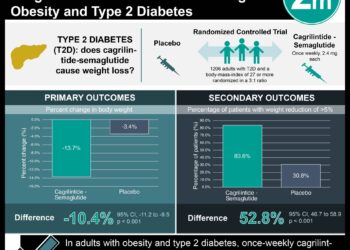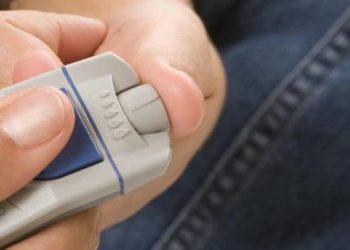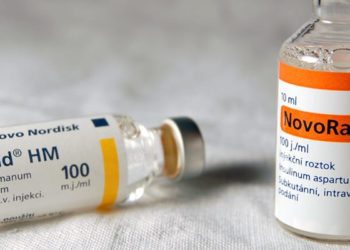Individualized glycemic control for type 2 diabetes may save the U.S. billions annually
1. Individualized glycemic control for type 2 diabetic patients could save the United States billions of dollars annually compared to uniform glycemic control.
2. Although individualized control increased complications (resulting in slightly decreased life expectancy), it created more quality-adjusted life-years (QALYs) due to reduced medications and hypoglycemic events.
Evidence Rating Level: 2 (Good)
Study Rundown: The cost of diabetes in the United States is approximately $245 billion per year, which makes cost reduction important. For type 2 diabetes, intensive glycemic control has been shown to be an economical standard of care. However, there is growing evidence that intensive control may be harmful, prompting the American Diabetes Association (ADA) to advise that glycemic goals be customized. The authors compared individualized control against uniform intensive control in terms of cost-effectiveness and applied data from the National Health and Nutrition Examination Survey (NHANES) 2011-2012 to a Monte Carlo-based Markov model to estimate average lifetime costs, life-years, and QALYs of 569 diabetic patients. It was estimated that compared to uniform intensive control, individualized control had a cost savings of $13,547 per patient, which is $234 billion when extrapolated to the 17.3 million adults ≥30 years of age with diabetes. Although individualized control increased complications (resulting in slightly decreased life expectancy), it created more QALYs as a result of reduced medications and hypoglycemic events. These results suggested that compared to uniform intensive control, using individualized glycemic control for type 2 diabetic adults may decrease cost and improve quality of life. The authors advised that further research is necessary to investigate the advantages and disadvantages of using individualized glycemic control.
A strength of this study is that it is gives an estimate of the economic implications of individualized glycemic control, which was not previously investigated by other studies. A limitation of the study is that it did not factor in the effects of early compared to later intensive glycemic control.
Click to read the study in Annals of Internal Medicine
Relevant Reading: Cost-effectiveness of intensive glycemic control, intensified hypertension control, and serum cholesterol level reduction for type 2 diabetes
In-Depth [cost analysis study]: Using data from NHANES 2011-2012, researchers found patients with self-reported diabetes who were ≥30 years old at the time of their diagnosis. This age criteria was used to detect patients with probable type 2 diabetes. Patients with ≥4 missing inputs for the Monte Carlo-based Markov model or had medication data that could not be identified were eliminated, resulting in 569 qualifying participants. Sixty-one was the average age, and half of the patients were female. Uniform intensive goals for glycemic control are considered HbA1c level <7.0%. ADA guidelines stipulate that individualized goals be more or less stringent than this. The authors used the assumption that more and less stringent goals are an HbA1c level <6.5% and less than 8.0%, respectively. Age and comorbidity factors were used to determine in which group patients should be placed. Complications were identified as a self-reported history of an albumin-creatinine ratio >300 mg/g, angina pectoris, congestive heart failure, coronary heart disease, dialysis in the past year, myocardial infarction, retinopathy, stroke, or a diabetic complication occurring at some point during the simulation. Calculated costs included hospital and medication use, complications, and supplies and tests used for self-monitoring. Individualized control cost $105,307 compared to $118,854 for uniform control, which was largely due to medication cost differences ($34,521 compared to $48,763). Individualized control reduced life expectancy (20.63 compared to 20.73 years) but created more QALYs (16.68 compared to 16.58).
Image: PD
©2017 2 Minute Medicine, Inc. All rights reserved. No works may be reproduced without expressed written consent from 2 Minute Medicine, Inc. Inquire about licensing here. No article should be construed as medical advice and is not intended as such by the authors or by 2 Minute Medicine, Inc.







